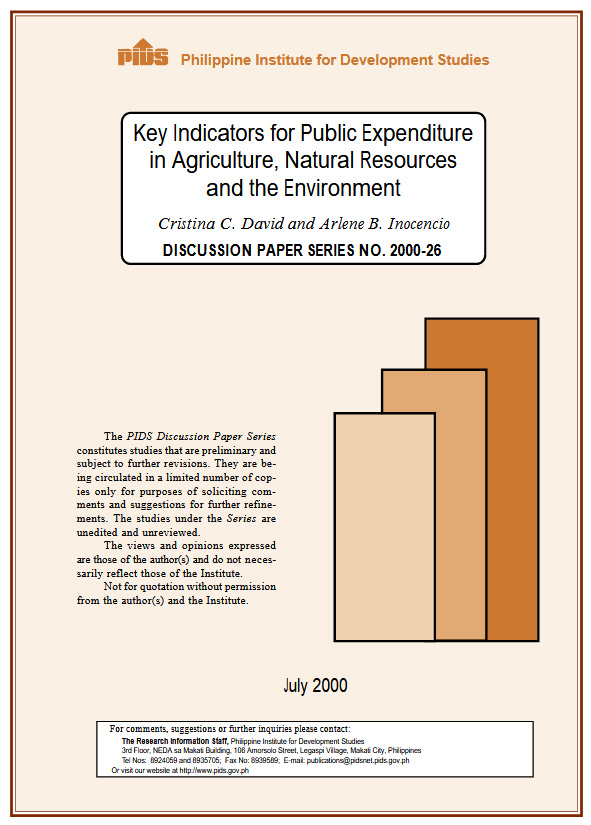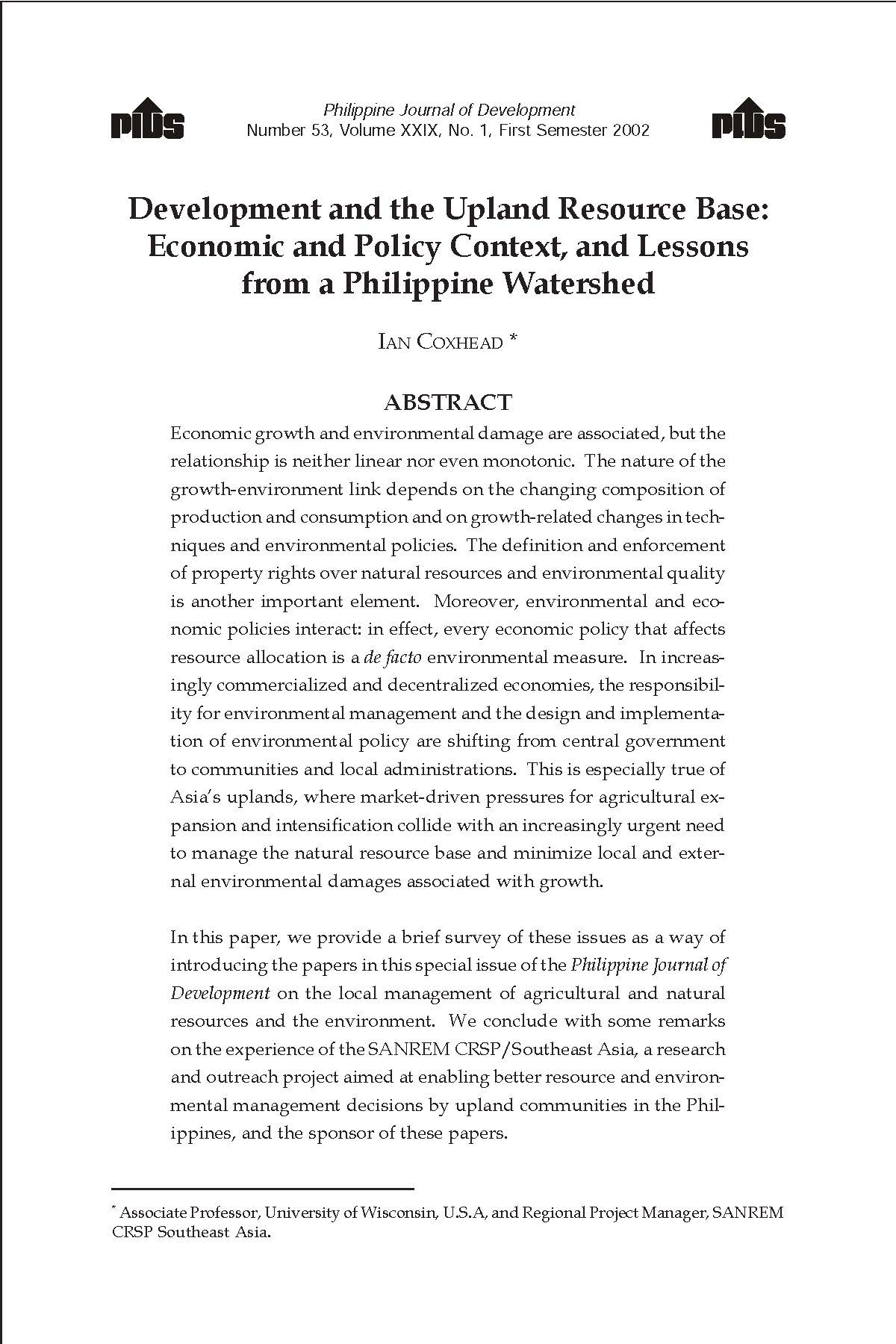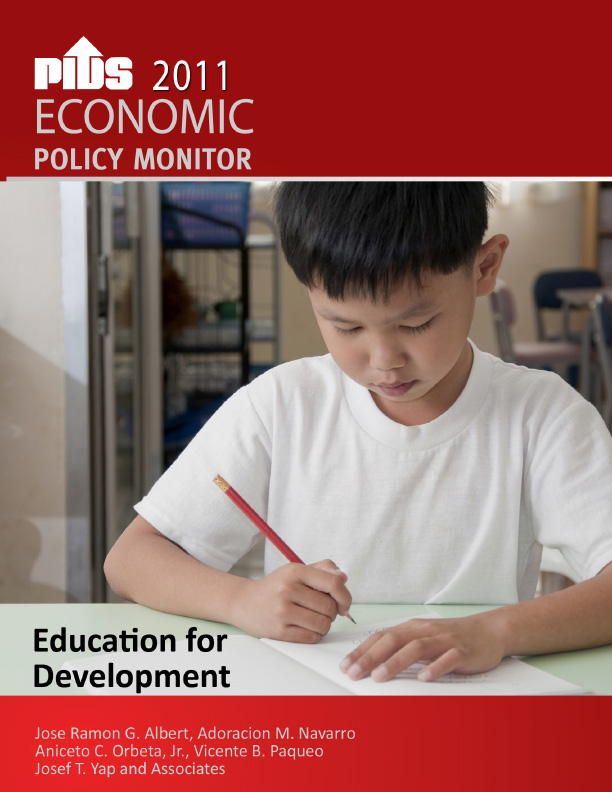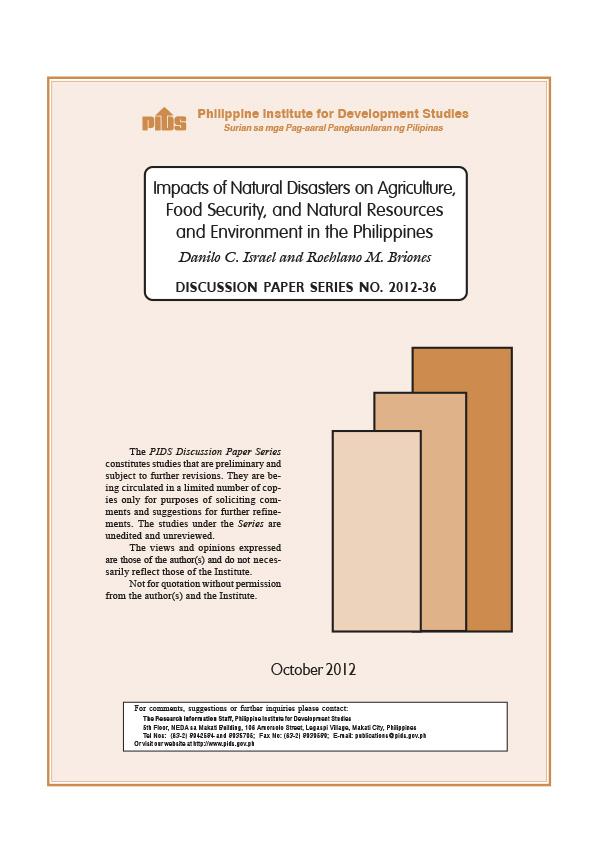This paper develops key performance indicators of public expenditure allocation for monitoring and evaluating the implementation of the Medium-Term Philippine Development Plan (MTPDP) with respect to the agriculture, natural resource and environment (ANRE) sector. To do this, the study reviews and analyzes the historical trends and patterns of public expenditure allocation and identifies strategic directions for public expenditure and related reforms. The observed faulty allocations of public expenditures, coupled with weaknesses in the budgetary process suggest major potential gains for improving the efficiency and effectiveness of public expenditure program in ANRE. These areas of reform relate to whether: (a) public expenditures are being used to perform/provide public roles/goods vs. private ones; (b) choice of policy instruments (i.e., expenditure program vs. other market-based instruments) is most cost-effective; (c) public expenditures are optimally allocated across policy instruments, agencies and levels of government, regions, and type of expenditures; (d) mechanisms for funding and other related budgetary procedures promote efficient and effective allocation of public expenditures; and (e) cost-effective mechanisms for timely monitoring, evaluation, and impact analysis of public expenditures are adopted. The study finds that a thorough analysis, monitoring and evaluation of expenditure programs are therefore crucial in ensuring that policy objectives are attained though efficient and effective public resource allocation. The paper concludes with a list of key public expenditures indicators recommended for monitoring and evaluation of the MTPDP.
Citations
This publication has been cited 1 time
- Briones, Roehlano M.. 2000. Property rights reform in Philippine agriculture: Framework for analysis and review of recent experience. Discussion Papers DP 2000-29. Philippine Institute for Development Studies.













